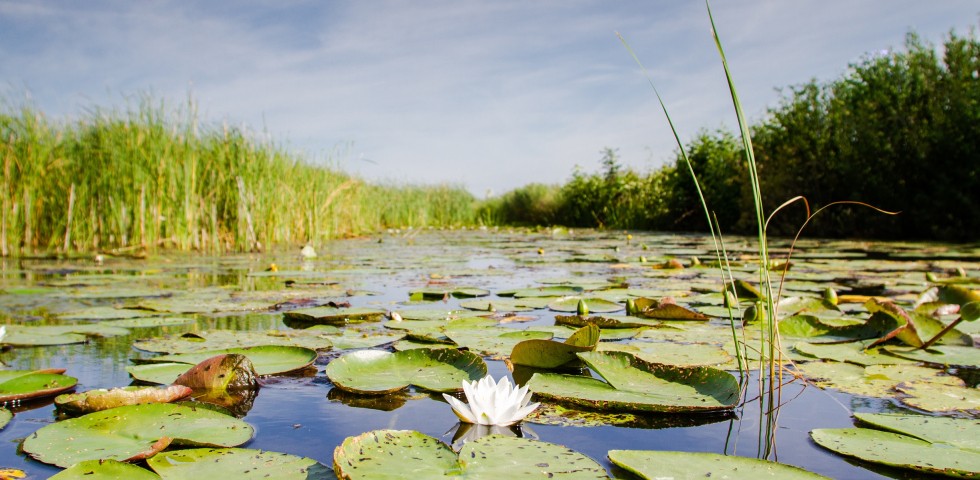Hinking
Several beautiful walking routes

Besides boating and cycling, you can also enjoy beautiful walks through the nature reserve. Put on your walking shoes and experience the peace and unspoiled nature here: the wind that rustles through the reeds, the singing of the reed warblers and reed warblers. And if you hear a splash in the water, it could be a duck or an otter.
Did you know that the name 'Weerribben' comes from the peat extraction that happend in this area? On the spots where peat was extracted, barriers appeared. The excavated peat was placed on the ribs, beceause it was dry over there. The original peat bog in this area has changed under the influence of man. For example, the area was drained by ditch digging. In the winter, the reed is cut in this area. In the spring, fresh green stems emerge and the views slowly disappear into high green walls of reed. In autumn the color of the reed changes to goldbrown, ready to be cut in the winter. Like this nature changes every season. The area has been made accessible with the construction of bridges and platforms. This way you can walk on this swampy, floating land without getting your feet wet. Enjoy nature without the inconveniences.
You start at the visitor center Weerribben and follow the yellow route from there. Along the way you will find information about the area on the indicated panels.
Did you know that gnomes live in the area? Everywhere you can find gnome tracks. Little footprints in the sand, tracks from a wheelbarrow, and sometimes even a little gnome turd. Really! Gnome man and woman are very kind and are busy, all day long. With what you might wonder? If you'll walk the gnome path, you'll find out!
Don't forget to look for the gnome tracks! With a little luck you'll pass a real gnome... The gnome path is a path indicated with little poles. The route is for children between 3 and 6 years old. The children will het a bagpack filled with treats. They also will get a read pointy hat and get their cheeks painted red. The parent will get a bagpack with a gnomebook explanation and assignments

You'll walk a few kilometers along the banks of the Kalenbergergracht. The thin reed that grows here is often used as a covering on the hood and wooden octagon of mills. On this canal lie Ossenzijl and Kalenberg, a sailing village that was only accessible by boat until the late 1950s.
Along the Hoogeweg you'll find a variety if 19th century farmworkers houses. Small farmers who earned their money by cutting reed or dig up peat used to live here. On this road you'll also find three mills. 'De Wicher' is a spiderheadmill from 1982 which drains the surrounding area. The mill is a replacement for a similar mill that was demolished here in 1943.You can also see the Tjasker Kalenberg from 1963 and the Tjasker Ossenzijl from 1977. Both are still able to grind, they supply the surrounding peat with water.
View the route hereOn the border of Overijssel and Friesland lies a beautiful, extensive and water-rich landscape with ancient villages.
At this route you'll walk through the ancient village of Oldemarkt. Here you'll find among others a monumental 17th century house with stepped gables and the impressive Reformed Church, which originally dates from the fifteenth century. From the village you walk through the meadows to one of the few three-way locks in the Netherlands: it connects De Linde with the Helomavaart. Village and nature at its best.
In the nature reserve 'De Rottige Meente' you will see a beautiful mix of water and land, reed and flowering grasslands. In 'De Rottige Meente' even live otters, who swum from the Weerribben. That's really special!

